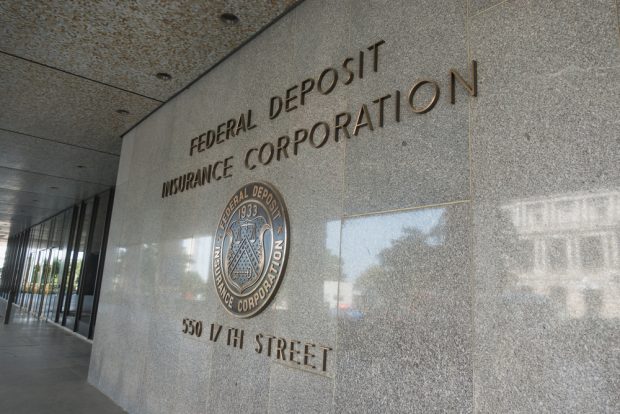SPOKANE, Wash. – A credit union helping finance a bordello? Well, make that a former bordello. "It is a unique property," admits Steve Dahlstrom, president and chief executive officer of Spokane Teachers Credit Union (STCU) when discussing the historic Montvale Hotel. "It has a colorful past." Thanks to a $2.9 million commercial loan from the credit union, the now rundown Montvale may soon have a brighter future as a boutique hotel in a renaissance of a downtown arts center. The Montvale, built in 1899 and a popular R&R spot for gold miners during what Dahlstrom calls the "rip-roaring days" of Spokane, is on the National Register of Historic Places. It is the city's oldest standing hotel building. Developer Rob Brewster of ConoverBond Development said the $3.5 million restoration project for the three-story hotel was history in the making. "With its rich history and modern amenities, the Montvale Hotel will rise to the top as one of Spokane's premier luxury hotels," Brewster vowed. Spokane Teachers Credit Union, which got into the commercial loan business just 15 months ago, sees the financing of the hotel project not just strictly as a good business deal. Rather, Dahlstrom says, it's also a good way to create new jobs in the community, help revitalize the downtown area and bring much needed business revenue to the city, where he said the average income is about 78% of the national average. The loan is expected to boost STCU's commercial lending portfolio in 2004 to $20 million, Dahlstrom estimated. The credit union did $10 million in loans in 2003 and has almost surpassed that figure this year. Dahlstrom said the credit union decided to get involved in commercial lending in response to member requests. "Members contacted us over the years (for commercial loans) and we kind of got tired of saying we can't do that," he said. Spokane Teachers, the largest credit union in eastern Washington and third largest in the state with more than 70,000 members and $650 million in assets, saw members moving their personal accounts elsewhere when the credit union could not offer commercial loans. "They were having to close out their accounts because they were doing their business accounts someplace else and the bank was requiring them to bring all their personal business there," he said. "We said that's not right. We should be able to do that." It took hiring some experienced loan officers, working with vendors to update computer programs to handle commercial lending and initially getting involved in loan participations from other credit unions to get the program off the ground. "We began the program with a walking start and I think we're up to a jog," Dahlstrom said. The loan department today employs three full-time people, a manager and two assistants. Dahlstrom said one of the keys to launching a successful commercial lending program was to bring experienced and knowledgeable people on board. "We wouldn't be doing this if we hadn't hired some people who really knew what they were doing," he said. "It's not so much knowing how to make a loan or even how to document it, put it on the computer, things like that. It's how to negotiate the loan. These loans are competitively bid. You'll find there are two or three financial institutions competitively bidding on these things and knowing how to structure it so you can have the best deal . . ." is critical Other commercial loans made by the credit union have been for such things as construction of office buildings, a church and financing an employee stock ownership plan. The $2.9 million loan for the Montvale project is one of the STCU's biggest loans so far. The balance of the $3.5 million hotel project will come from private financing. Brewster praised the support he received from the credit union. "This (hotel project) would not be possible without the dedication and support from STCU," he said. "We've had many false starts on this project and appreciate STCU's effort and sincerity in completing the financing. STCU has been great to work with." Dahlstrom said the credit union initially got involved with ConoverBond when STCU approached Brewster's company about providing financial services to its 50 employees through its "Community Business Partners" program. Brewster was already a member of the credit union, Dahlstrom said. "We started doing some presentations and the owner asked if we did commercial financing," Dahlstrom recalled. "We said yes. He said, `I've got this project I'd like you to take a look at.'" After several months of review and working out the details, the financing deal was struck. Having a commercial lending program puts new stresses and demands on a credit union, Dahlstrom noted. "I think you have to understand that you're taking on a different kind of risk," he explained. "Even your collection activities are different. If a $3 million hotel loan goes bad, you're not going to repossess it. If you do, you're going to be in the hotel business. So you have to have a strategy of how you're going to work with a borrower if their cash flow suddenly dries up." Commercial loans also require more follow up and review, since the credit union has to go over financial statements every quarter with the borrower after a loan is made, he said. "If the loan goes bad, you're going to have a problem," Dahlstrom said. "So you're constantly working with the borrower to make sure the financial situation continues to be good." And Dahlstrom said it wasn't a matter of "if" a loan would go bad but "when." "I think you have to anticipate that you will (eventually have a bad loan)," he said. "If you don't anticipate that you will, then you really shouldn't be in this business. I think you have to go into it with the idea that you are going to have some problems. But that's why there's more review." So far, Dahlstrom noted, Spokane Teachers has not had to deal with a loan gone bad. When completed before the end of this year, the Montvale will have 36 hotel rooms (it originally had 64) on the second and third floors. A restaurant currently operates in the basement and a billiards parlor is on the first floor. The upper floors were closed in 1980. Brewster's plans envision a 4,000-square-foot restaurant and lounge on the first floor, along with conference rooms in the basement and on the first and second floors. A 100-seat theater is planned for the basement, adjacent to the current restaurant. Brewster and Dahlstrom see the renovated hotel as a harbinger of things to come. The Big Easy concert hall has already opened across the street from the Montvale and the CenterStage super club and theater is next door. The Spokane Symphony plans to renovate the Fox Theater, which is also across the street from the hotel. Two other upscale boutique hotels are nearby. "We've got to start showing people Spokane can be a fun place to come visit, kind of like back in the '20s and '30s when it was `the' place to visit," Brewster said. "It's a unique property and we're glad to be part of it," Dahlstrom said of the Montvale. Spokane Mayor Jim West described the changes that Spokane was undergoing as a "renaissance." As for the Montvale's checkered past, Brewster once told an interviewer: "In terms of glorified history, somebody was probably shot here, but not a president or anything. And I don't think anybody important ever visited here, except maybe late at night . . . and they probably shouldn't have been here." -
© Touchpoint Markets, All Rights Reserved. Request academic re-use from www.copyright.com. All other uses, submit a request to [email protected]. For more inforrmation visit Asset & Logo Licensing.






